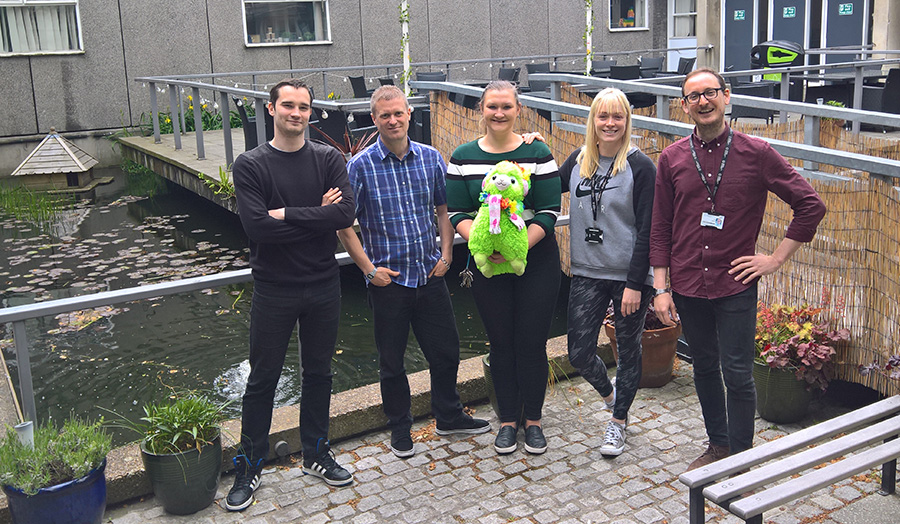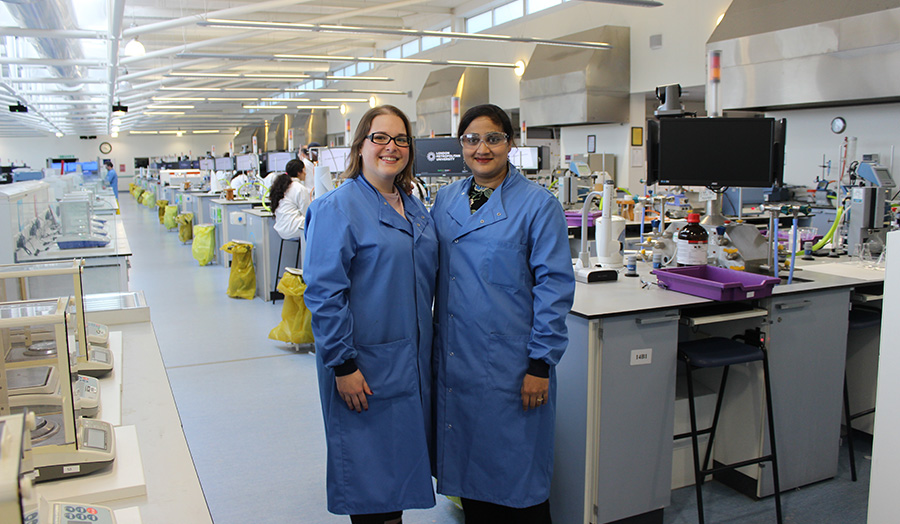Apply for this course
Please select when you would like to start:
Use the apply button to begin your application.
If you require a Student visa and wish to study a postgraduate course on a part-time basis, please read our how to apply information for international students to ensure you have all the details you need about the application process.
Why study this course?
London Met has won several prestigious awards for its corporate social responsibility and environmental sustainability. This advanced diploma will give you an awareness of the issues surrounding corporate social responsibility and give you the tools to critically analyse and evaluate these issues. This course is aimed at middle management professionals and technical specialists who are already working in CSR and sustainability who have an interest in expanding their knowledge.
Learn from industry professionals
As well as being delivered by experienced staff at London Met, you’ll also be taught by guest lecturers with knowledge and experience of corporate social responsibility
Study at an award-winning institution
We have won several prestigious awards for its corporate social responsibility and environmental sustainability
Boost your career prospects
By the end of the degree, you'll have an understanding of the complex area of CSR, allowing you to become a fully-informed sustainability professional
Course modules
The modules listed below are for the academic year 2024/25 and represent the course modules at this time. Modules and module details (including, but not limited to, location and time) are subject to change over time.
Year 1 modules
Environmental Economics and Investment
This module currently runs:autumn semester - Tuesday evening
(core, 20 credits)
Environmental Economics and Investment is a Level 7 module which is core to MSc Corporate Social Responsibility and Sustainability. It is one of the optional Economics modules studied on other courses.
The Environmental Economics and Investment module considers in depth the issues faced by governments and businesses in the face of climate change and other global trends in relation to the environment and the economy. It extends their understanding of the complex and critical relations between man and nature in the processes of economic reproduction.
The module assesses the standard economic principles in their use as tools to investigate the causes, consequences and the possible solutions to problems of environmental degradation and climate change. The three major themes in the module are (i) the determination of the ‘optimum’ levels of environmental resource usage (ii) the analyses of alternative ways of attaining those targets and (iii) the impact of these actions on business decision making.
The crucial notion of 'sustainability' is a key to the investigation. So are the proximate and underlying causes of environmental problems. The main aim of the module is to introduce students to the established economists’ way of analysing environmental problems, and to explore the evolving methodologies prompted by the environmental crisis now upon us.
Note: If there are not sufficient student numbers to make a module viable, the School reserves the right to cancel such a module. If the School cancels a module it will use its reasonable endeavours to provide a suitable alternative.
Read full detailsFundamentals of CSR and Sustainability
This module currently runs:autumn semester - Wednesday afternoon
(core, 20 credits)
The field of corporate social responsibility has practically transformed our world and reoriented the way corporate entities conduct and perceive their operational activities. Corporate managers and those who represent corporate entities are expected to always behave ethically. Modern societies now expect that solutions to our social and environmental problems cannot only be the prerogative of nation governments, businesses of the 21st century have a lot to contribute when finding solutions to these problems. The demands modern stakeholders put before corporate entities have continued to increase; tomorrow’s managers need to know how to meet these demands. Some scholars have in fact argued that corporate social responsibility has drawn our attention to some of the excesses which globalisation has brought unto the corporate scene in the 21st century. We have seen some unacceptable practices which have accompanied globalisation and consequently made the job of CSR and what it advocates much more difficult. Many things have been made a lot more challenging for everyone because of this. We cannot ignore the adverse impacts of these excesses. There are several unacceptable practices in the form of injustices and human rights abuses, extreme poverty in several nation states both - emerging and even some advanced nations, environmental degradation, some irresponsible and reckless practices by some corporate leaders and terrorism on a very large scale. In recent years, a number of social, economic and environmental problems have continued to cause concern to us all, for example, climate change, waste management and irresponsible use of our depletable resources just to mention a few. Sustainable Development is a buzzword in CSR; both corporate and individual citizens still need to demonstrate that we are serious in executing what sustainable development means to us, what it requires from us all and how the needs of future generations of all inhabitants of this planet would be sustainably met; these are issues tomorrow’s managers would need to know how to embed in corporate strategies. This module aims to lay the foundation on how modern managers should address these and other CSR related issues.
Note: If there are not sufficient student numbers to make a module viable, the School reserves the right to cancel such a module. If the School cancels a module it will use its reasonable endeavours to provide a suitable alternative.
Read full details






.jpg)











